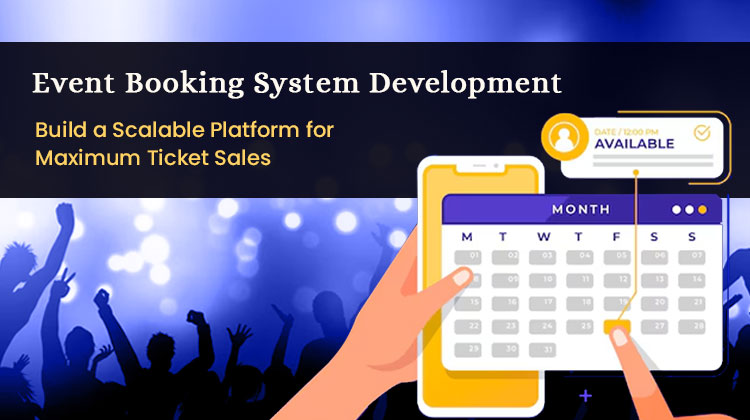
06 Mar, 2025
The event industry has undergone rapid digital transformation, with a projected market growth of 10.65% CAGR from 2023 to 2028. Having a reliable event booking system is now essential for organizers looking to scale their events efficiently. Whether managing small workshops, large concerts, or corporate events, a well-built system ensures smooth ticketing, efficient registrations, and seamless attendee management.
An optimized event booking software not only enhances the user experience but also maximizes revenue by automating ticket sales and integrating various payment options. This guide will walk you through the key elements of developing a scalable online event booking platform, ensuring you attract more attendees while simplifying operations.
Essential Features of a High-Performing Event Booking System
1. User-Friendly Event Discovery and Registration
A successful event booking platform should offer intuitive event discovery and a seamless registration process. A responsive, well-structured interface allows users to explore events effortlessly, filter by category, and secure tickets in a few clicks.
2. Secure and Multiple Payment Gateway Integration
To enhance trust and convenience, your online event booking software should support multiple payment options such as credit/debit cards, digital wallets, and UPI payments. Integrating SSL encryption ensures secure transactions, reducing cart abandonment rates.
3. Automated Ticketing and QR Code Generation
A robust event booking system should generate e-tickets with QR codes for easy verification. This eliminates manual check-ins, speeding up the entry process and improving event security.
4. Real-Time Seat Selection and Dynamic Pricing
For events with assigned seating, integrating a real-time seat selection feature enhances user experience. Additionally, implementing dynamic pricing based on demand helps maximize revenue.
5. Customizable Event Pages and Branding Options
Allowing event organizers to create personalized event pages with branding elements increases engagement. A white-label solution within your event booking platform ensures businesses can maintain their brand identity.
6. Email and SMS Notifications for Attendees
An effective event booking system must offer automated notifications, sending confirmations, reminders, and updates about events via email and SMS.
7. Integration with Marketing Tools and Social Media
To maximize visibility, integrating social media sharing and email marketing tools in your online event booking platform allows organizers to promote events efficiently. Features like referral programs and discount codes can further boost attendance.
8. Analytics and Reporting Dashboard
A data-driven event booking software should provide real-time analytics on ticket sales, user behavior, and marketing effectiveness. This helps organizers make informed decisions and improve future event strategies.
Steps to Develop a Scalable Event Booking System
Step 1: Define Your Target Audience and Objectives
Understanding the needs of your audience is crucial in building a successful event booking platform. Identify key pain points such as slow booking processes, limited payment options, or lack of mobile support, and address them in your solution.
Step 2: Choose the Right Technology Stack
Selecting the appropriate tech stack is crucial for ensuring your online event booking software remains scalable and high-performing, especially during peak ticket sales periods. For example, using cloud-based infrastructure allows automatic scaling to handle sudden surges in traffic. Popular choices include:
• Frontend: React.js, Vue.js, or Angular for a responsive UI
• Backend: Node.js, Django, or Laravel for robust data handling
• Database: PostgreSQL, MySQL, or MongoDB for efficient storage
• Mobile Compatibility: Flutter or React Native for cross-platform applications
• Cloud Hosting: AWS, Google Cloud, or Azure for scalability
Step 3: Design an Intuitive User Interface
A well-designed event booking system must have an easy-to-navigate interface that allows users to search, book, and pay for tickets effortlessly. Focus on mobile responsiveness and accessibility to enhance user engagement.
Step 4: Develop Core Features and Functionality
Once the UI is ready, implement the core functionalities, including ticketing, payment processing, and event management. Ensure seamless integration of third-party tools like email marketing software and CRM systems.
Step 5: Implement Robust Security Measures
Security is critical in an event booking platform to protect user data and transactions. Incorporate SSL encryption, two-factor authentication, and compliance with GDPR or other data protection regulations.
Step 6: Test and Optimize Performance
Thorough testing ensures a seamless user experience and helps detect issues before launch. In addition to traditional testing, gathering early user feedback through beta testing can highlight usability improvements that enhance customer satisfaction. Perform:
• Load Testing: Ensuring system stability under high traffic
• Usability Testing: Checking for an intuitive user flow
• Security Testing: Identifying vulnerabilities to prevent cyber threats
Step 7: Launch and Continuously Improve
Deploy your event booking software with a strategic marketing plan. Collect user feedback, analyze performance, and update features regularly to stay ahead of competitors.
Benefits of Implementing an Event Booking System
A well-developed event booking system offers several advantages, including:
• Increased Ticket Sales: Automated bookings and dynamic pricing strategies optimize revenue.
• Better Customer Experience: A seamless registration and payment process enhances user satisfaction.
• Operational Efficiency: Reduces manual workload and minimizes booking errors.
• Data-Driven Insights: Real-time analytics help improve marketing strategies and future event planning.
• Enhanced Brand Visibility: Integration with social media and marketing tools amplifies event reach.
Conclusion: Scale Your Ticket Sales with a Reliable Event Booking System
A scalable online event booking system development requires a blend of intuitive design, advanced features, and robust security. For instance, leading platforms implement AI-driven pricing models and predictive analytics to optimize ticket sales. By implementing real-time ticketing, automated marketing tools, and seamless payment options, event organizers can maximize sales while enhancing attendee experience.
If you need a trusted event booking system development company, Idiosys Tech has successfully delivered solutions that enhance event management efficiency. Our expertise includes real-time ticketing, automation, and secure payment integration. Contact us today to develop a feature-rich event booking platform that drives maximum ticket sales and operational efficiency.
__________________________________________________
Can an event booking system handle different types of events?
Yes, it can manage concerts, conferences, sports events, and more with customizable features.
Does an event booking system support multiple payment options?
Yes, it integrates with various payment gateways, including credit cards, digital wallets, and UPI.
Can an event booking system handle last-minute bookings?
Yes, real-time ticketing and instant confirmations allow last-minute registrations smoothly.
Does an event booking platform offer real-time reporting?
Yes, it provides insights into sales, attendee demographics, and marketing performance.
__________________________________________________
You May Also Read
Event Ticketing Applications: Streamlining the Journey from Planning to Showtime

